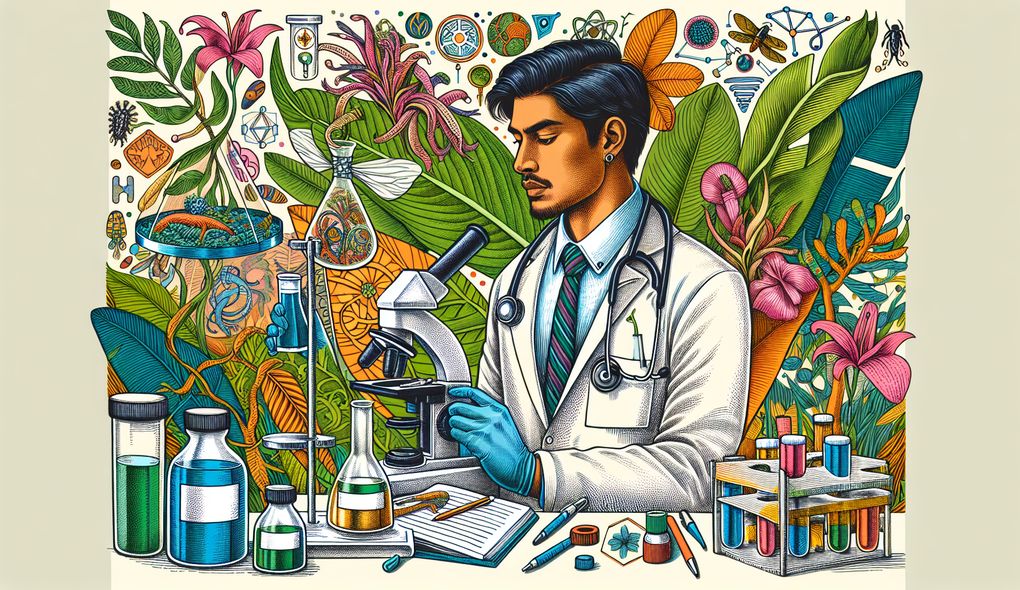How do you ensure compliance with ethical standards in your research and clinical practice?
SENIOR LEVEL

Sample answer to the question:
In my research and clinical practice, I ensure compliance with ethical standards by following established guidelines and protocols. This includes obtaining informed consent from participants, ensuring confidentiality of patient information, and conducting research in an unbiased and objective manner. I also stay updated on the latest ethical guidelines and regulations in the field of tropical medicine. Additionally, I actively participate in ethical review committees and seek guidance from mentors and colleagues when faced with ethical dilemmas.
Here is a more solid answer:
Ensuring compliance with ethical standards is a crucial aspect of my research and clinical practice in tropical medicine. I am well-versed in the ethical guidelines and regulations governing the field, such as obtaining informed consent from participants and maintaining patient confidentiality. For instance, in my recent research project on malaria treatment, I obtained approval from the ethical review board and ensured that participants were fully informed about the study and its potential risks. I also implemented strict measures to protect patient confidentiality by anonymizing data and using secure storage systems. In addition, I actively engage with colleagues and mentors to discuss ethical dilemmas that may arise in my practice, seeking their guidance and expertise. This collaborative approach allows me to make well-informed decisions in high-pressure situations. Moreover, I consistently strive to enhance my communication and interpersonal skills, as they are vital for effectively collaborating with multi-disciplinary teams in public health programs and research projects.
Why is this a more solid answer?
The solid answer provides specific examples of how the candidate ensures compliance with ethical standards in their research and clinical practice. It addresses all the evaluation areas mentioned in the job description, demonstrating their expertise in tropical diseases, decision-making skills in high-pressure environments, and communication and interpersonal skills for collaborating with multi-disciplinary teams.
An example of a exceptional answer:
Maintaining compliance with ethical standards is of utmost importance to me in my research and clinical practice. I go above and beyond the minimum requirements by proactively seeking opportunities for continuous learning and improvement in ethical practices. For example, I actively participate in workshops and conferences on research ethics to stay updated on the latest developments and best practices. In my previous work on a clinical trial for a new treatment for dengue fever, I not only adhered to ethical guidelines but also conducted regular check-ins with participants to ensure their well-being throughout the study. I believe that ethical research involves not only following protocols but also having a genuine concern for the welfare of the individuals involved. This approach has earned me the trust and respect of both my colleagues and participants. Additionally, I have successfully led initiatives to integrate ethical considerations into public health programs, such as incorporating community engagement strategies to ensure cultural sensitivity and respect for local values. I am committed to upholding the highest ethical standards in tropical medicine and continuously seek to improve by reflecting on my own practices and seeking feedback from peers and mentors.
Why is this an exceptional answer?
The exceptional answer goes beyond the basic and solid answers by showcasing the candidate's proactive approach to ethical standards and their commitment to continuous improvement. It provides specific examples of continuous learning in research ethics, active participant engagement, and integrating ethical considerations into public health programs. The candidate's commitment to reflection and seeking feedback further demonstrates their dedication to upholding the highest ethical standards in tropical medicine.
How to prepare for this question:
- Familiarize yourself with the ethical guidelines and regulations related to tropical medicine, such as informed consent and patient confidentiality.
- Stay updated on the latest developments and best practices in research ethics by attending workshops and conferences.
- Reflect on your own ethical practices and seek feedback from colleagues and mentors to identify areas for improvement.
- Be prepared to provide specific examples of how you have ensured compliance with ethical standards in your research and clinical practice.
- Demonstrate your commitment to ethical standards by highlighting your proactive approach to continuous learning and improvement.
What are interviewers evaluating with this question?
- Expert knowledge of tropical diseases and their treatment options.
- Solid decision-making and problem-solving skills in high-pressure environments.
- Excellent communication and interpersonal skills for collaborating with multi-disciplinary teams.

